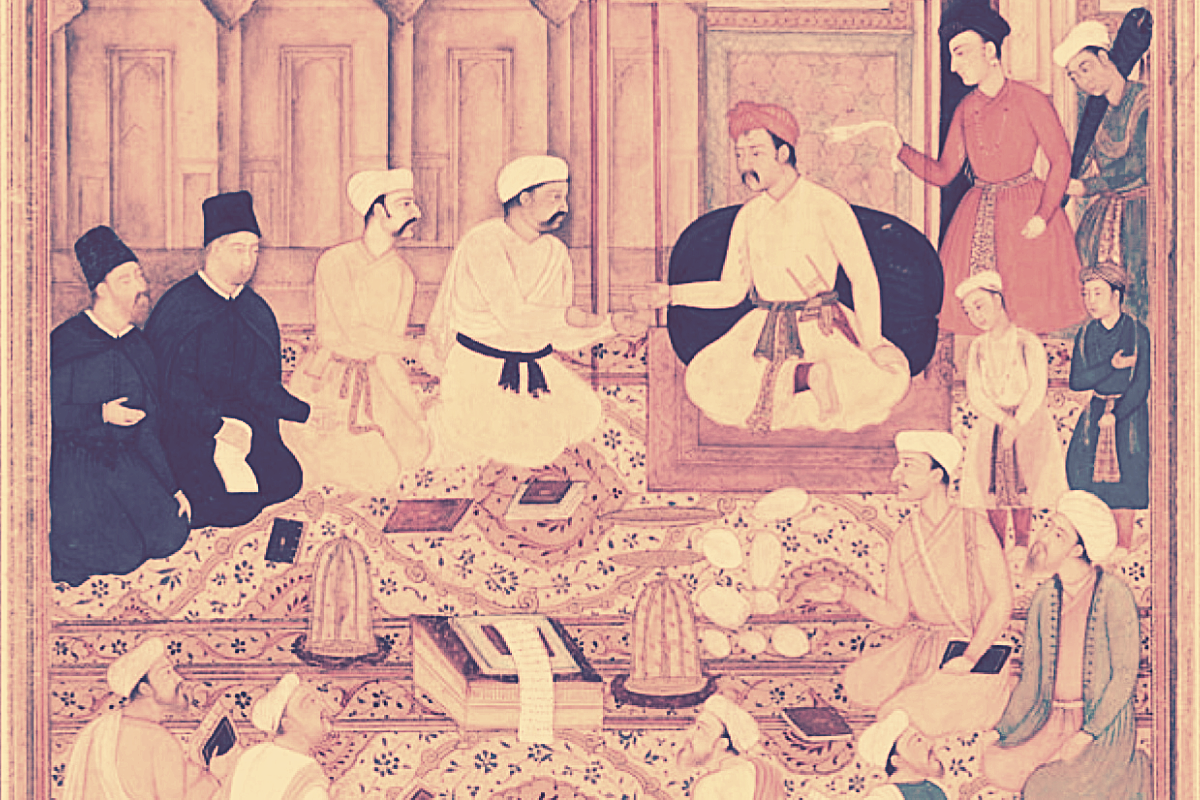
The Great Moghul Emperor Akbar (1556 – 1605) invited the Jesuits from Goa to explain the Christian faith. Akbar’s initial curiosity about Christianity was primarily due to his discussions with the Portuguese.
Not surprisingly, the Emperor’s invitation spiked interest among the Jesuits, perhaps with a view of getting a favourable response from the Emperor himself. And so, three Jesuit priests, Rudolph Acquaviva, Anthony Monserrate and Francis Henriques, from St. Paul’s college reached the Moghul Court in 1580.
The delegation took the seven-volume Royal Polygot Bible published by Christopher Plantyn in Antwerp between 1568 – 72, the then most prestigious Bible Edition and presented it to the Emperor. The three Priests were well received, and so was their religious discourse. They were given full liberty to preach and propagate the Christian faith. Besides, they could even reproach the Emperor on personal matters and administrative policies.

The Jesuit priests inveighed against Akbar’s toleration of Sati and his plurality of wives. In addition, they reproached him for his negligence and tardiness in studying the holy things. At various high points, the Jesuits were hopeful that the Emperor would embrace Christianity, but in the end, no such thing ever took place.
The Emperor’s obstacles were certain doctrines of the Christian faith, such as Incarnation and the Trinity. But, as Fr. Acquaviva notes, other reasons, such as ‘bad listening’, ‘unwillingness to give up polygamy, and ‘seeking a spectacular miracle’ may have been the obstacles to embracing the Christian faith.
In 1582, Akbar began to propagate din Ilahi, a self-invented religion that combined elements from all faiths mixed in different proportions. Hindu philosophers, Jain teachers, Parsee priests, and even rival Muslim sects were invited to come and explain their religion in Ibadat-Khanna, a newly built house of worship. The Emperor, wanting to synthesize the many religious traditions of India, attempted to bring together an array of voices.
Akbar was keen to accept ideas from several religions but not adhere to any one particular religion. This may explain why he stopped short of becoming a Christian, although he was keen to listen to the Jesuits. With no further possibility of the Emperor’s personal adherence to the Christian faith, the Jesuit fathers closed down the Mission.
“At various high points, the Jesuits were hopeful that the Emperor would embrace Christianity, but in the end, it never took place.”
The Jesuits returned to Akbar’s Court again in 1591 and 1595. However, Akbar avoided any religious discussion with the Jesuit fathers (Fr. Jerome Xavier, Fr. Emmanuel Pinheiro, and Bro. Benedict de Goes), citing various reasons. However, Akbar commissioned Fr. Jerome to translate the Life of Christ into Persian as the Dastan-i-Masih. The Jesuits also got a written order signed by the Emperor himself, granting permission for citizens to practice Christianity. The other notable success was establishing a school and congregations at Agra and Lahore.
The Jesuit Mission at the Moghul courts was initially undertaken during the reign of Akbar, and eventually, the Jesuit presence at the Court lasted till the end of the dynasty. The fact that the Jesuits enjoyed the favour of the Emperor and some nobles and established Christian communities at various places in the Empire was a significant achievement.
Fr. J. Felix Raj contends,
“The Jesuit mission at Akbar’s Court, however, cannot be considered a total failure. The Jesuit presence did help to bring about a better understanding and dialogue between Islam and Christianity, which was precisely what the circumstances had thrust upon them there. The friendship that came into existence outlived the Jesuit missionaries”.
It must also be mentioned that Fr. Anthony Monserrate, on the first Jesuit Mission to Fatehpur Sikri, did a survey and faithfully kept a diary of all the events and observations for the latitudes. He continued to take observations en route to Kabul when he accompanied the Emperor. These manuscripts were later used in 1804 to prepare maps of the countries west of Delhi. Not surprisingly, Fr. Monserrate is said to be the first Jesuit geographer in India. Romila Thappar writes, “if the Jesuits had not been to India, there would be no written history of India”.









